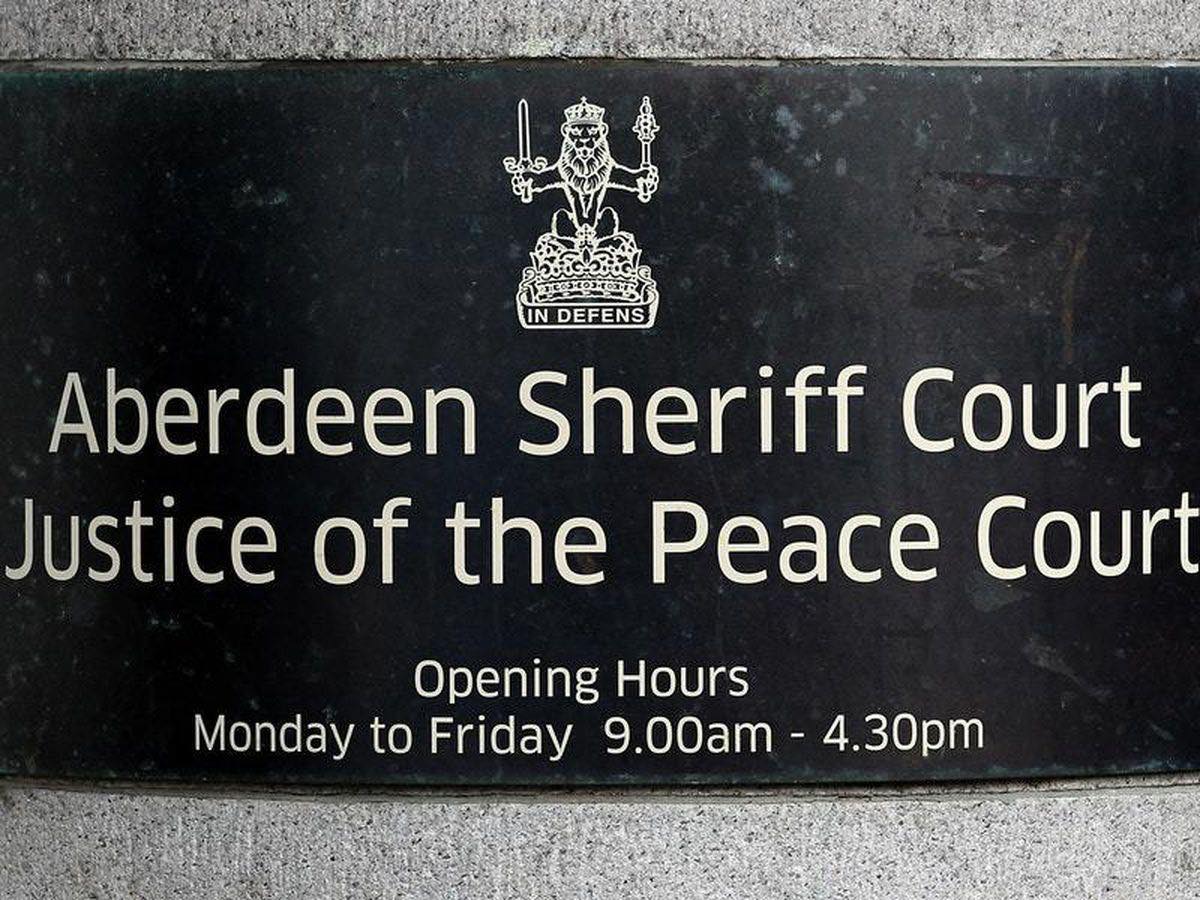What a week it’s been for Old Susannah. The pizza party that never was, PR wars and public accusaltion of criminal activity. Where to start? And where is it all going? By Suzanne Kelly.
According to the Press & Journal of 21 February, Tom Smith of ACSEF claims to be the victim of internet ‘bullying… harassment… intimidation’ and so on. The nature of the claims are not spelled out, but allegations are made of an ‘objectionable’ image (no, not one of the ‘concept’ drawings of the Granite Web), e-mail hacking and receipt of abusive emails.
Smith has called in the police. It seems those he accuses of this broad spectrum collection of attacks are the broader spectrum of people opposed to building in Union Terrace Gardens.
Hacking is illegal. Threatening is illegal. When it comes to posting threatening remarks on internet sites, the law still applies. But we are in a democracy which prides itself on centuries of press freedoms.
The British Isles may truly be called the birthplace of political satire, a recognised and legitimate weapon of the press, often the only means of attacking people of wealth and power who might otherwise escape scrutiny.
The press has been filled with accounts of the nefarious activities in days not long past at News International. Police have been bribed; phones of murder victims have been hacked, private correspondence has been intercepted. The offenses are both shocking and illegal. Elsewhere online, threats are issued back and forth; the cloak of anonymity is often mis-used for the benefit of the coward or the manipulative. As unpleasant as some online banter may be, not all of it is illegal by a wide margin: the P&J know this extremely well.
If Mr Tom Smith and/or his family have had any bona fide threats (whether electronic or not), or if Mr Smith has been illegally hacked, then I will be the first to defend his rights and demand an enquiry. (Note: did you know that council officials can get court orders to snoop on residents for a variety of reasons? If not, you know now).
However, there are several issues arising from this Press & Journal story which need to be dissected.
From the P&J, the blur between the allegedly illegal and the legal is as blurry as the specific details of the City Garden Project itself.
The timing of this claim comes close to the end of the referendum voting period – Mr Smith seems in the article in question to be making a blanket-bombing attack on all those who oppose the plans to build over Union Terrace Gardens. I can assure Mr Smith that there was never a looser or more informal federation of people opposed to the City Gardens Project.
Why do he and the P&J feel the need to group political parties, grass-roots movements, students, OAPS, rich and poor into a single entity that is apparently illegally attacking him?
I am keen to hear the specifics of the accusation. Perhaps Mr Smith is accustomed in his very many roles (1. ACSEF Chairman, 2. City Gardens Project Management Board, 3. City Gardens Implementation Team Chair, 4. City Gardens Project Advisory Group, and 5. Director of Aberdeen City Gardens Trust) to only being treated with deference. In social network sites; on newspaper comment pages, there is no automatic right to be treated politely.
Not everyone uses genteel language; one person’s foul language is another’s common vernacular. What is the specific nature of the abuse(s) being claimed? From the P&J, the blur between the allegedly illegal and the legal is as blurry as the specific details of the City Garden Project itself.
It is refreshing as well as amusing in the extreme to see the Press & Journal showing such concern to those ‘bullied and/or intimidated’ via internet: readers of its online comments will be familiar with the abusive, bullying, personal, crude tactics of two of its most prolific, rarely censored anonymous posters, Jock W and the even more notorious Sasha M.
Months ago Sasha M made comments about me which were libellous in my (and my legal advisor’s opinion). I complained and considered whether or not to sue; the editor of the P&J called me and agreed to take the posts off. As I reported at the time, the editor told me that since ‘you skate pretty close to the edge yourself, you have to be able to take it as well.’
I reminded him that I write a satirical column, and that if Sasha M writes something about me which appears on a site owned and controlled by the P&J, purporting to be a place for comments on news stories, Sasha’s postings had better be true. (I suggested ridiculing my overly-large nose; that at least would have a grain of truth in it: but Sasha had claimed two libels against me which were published on the Press & Journal’s website as if they were factual. They were not, and as such I considered them illegal).
But now it is time to look at the Press & Journal. Today’s article is a very odd creature.
I have been sent occasional searing, blistering emails by those I have satirised. My satirical subjects have been politicians who have voted to slash benefits, close schools, destroy greenbelt land, and who have been convicted of criminal acts.
I see my small satirical column as my only weapon against a public/private power structure that, in my opinion, seems to wants to suck as much out of the taxpayer and give them as little in return as possible, while commissioning portraits of themselves, attending concerts and other events.
My writing is certainly not to everyone’s taste – but I am using the legal, accepted, platform called satire. If I have successfully drawn attention to any injustice and/or incestuous public/private sector overlaps, then I’ve succeeded. But in any event, I stay within the law, and will continue to write as long as I can find a reader.
But now it is time to look at the Press & Journal. Today’s article is a very odd creature. It voices Mr Smith’s complaints – but it mixes illegal activity such as hacking and threats with totally legal (if undesired) activity such as online posts. It stops short of accusing anyone of libel, but it hints at it. What is the P&J actually trying to say is the subject of the police investigation? Are the police roping together all internet items which offend Mr Smith – legal and illegal? The P&J certainly seems to be doing so.
For quite some time P&J editorial staff have been aware of the over-the-top, racist, nationalistic, insulting behaviour (in the opinion of many) of some of its posters. Mike Shepherd is only one target of Jock, Sasha and their vitriolic crew. Mike and the others have not gone to the police as far as I know, but by Mr Smith’s standards they certainly would be within their rights to do so. In reviewing randomly the writing of Jock and Sasha, I’ve come across highly offensive, possibly illegal posts including:-
* references to ‘incomers’ in less than flattering contexts, which certainly sound nationalistic and insular and to some degree threatening to me
* references to specific politicians such as Lewis MacDonald which are extremely insulting
* stereotyping of anyone suspected of left-leaning politics
* a remark from Sasha: ‘let’s kill off these protestors once and for all…’ not kill off the protest – but the actual people – the protestors.
* Jock W invokes the Nazis in an insult directed towards Mike Shepherd – Jock references ‘Goebbels’ and alludes to ‘Chemical Ali’ by way of typing ‘Comical Ali’.
Nazi related insults? Threats to kill protestors? What has been allowed on the Press & Journal online editions for all these past months?
They are surely responsible for posts put on their website. A feeble addition of links whereby readers can ask for a quote to be ‘reported’ is by no means a substitute for the responsibility the P&J have as the owners of this website. I have had scores of people tell me they used these links to complain, all to no avail.
Clearly the P&J need to look at their own house.
The real point here though is that the Press & Journal knowingly allows this type of comment to go on, refuses to police its own comments pages, and yet has the gall to support Mr Smith in his complaints that people are being intimidating and bullying to him online, mixing illegal and legal activity in what seems like a very crude attempt to smear anyone who stands up against the City Gardens Project or those who support it.
A kind word to Aberdeen Journals: things are changing. Your circulation and profit margin are apparently not what they once were. People are saying openly that you seem blatantly biased towards any hype the pro CGP teams throw at you. Have you gone too far this time? Just a thought.
I welcome any police investigation into any illegal activities – threatening people, hacking and so on. Our police will be well aware of guidelines protecting free expression, satire and online comments.
One recent complaint I had threatened me with legal action and the Scottish Football Association (!)
If any attempt is made to curb, censor or halt normal rights of the individual, then this small writer through to the NUJ and all responsible news agencies will be there to safeguard our journalistic rights and day-to-day free expression.
In point of fact I am trying to make up my mind: should I stand up to Sasha M and launch a suit against him and/or the Press & Journal now after all (don’t worry – I still have screen shots of Sasha’s remarks about me – in an item about the Lord Provost giving away expensive gifts which I neither commented on nor had any involvement with whatsoever)?
This could stop any further written threats to ‘kill protestors’ or nationalistic rhetoric about ‘incomers’. For that matter – I thought the garden ramps project was to encourage newcomers to the area? With Sasha’s rants against newcomers, this will indeed be hard work.
Back to my legal, online writing. For every piece of fact I have written about, I can assure my detractors that I will have a source, and that source will be doubly – if not triply – backed up. I have in the main while writing received many letters of support (for which I am sincerely grateful).
One recent complaint I had threatened me with legal action and the Scottish Football Association (!) if I did not print a retraction of my article. Instead my source material was reviewed, not only fully vindicating my assertions, but also paving the way to printing further details the complainant may not have wanted publicised.
Finally, here is a nice way to illustrate these points, which I will call The Casablanca Gambit.
Classic Film readers will remember dialogue from the iconic (the word is well used in this case) film, ‘Casablanca’. The Chief of Police in Casablanca, Captain Renault, has been ordered by Nazis to close Rick’s Cafe by any means. This is what transpires:
Rick: How can you close me up? On what grounds?
Captain Renault: I’m shocked, shocked to find that gambling is going on in here!
[a croupier hands Renault a pile of money]
Croupier: Your winnings, sir.
Captain Renault: [sotto voce] Oh, thank you very much.
Captain Renault: [aloud] Everybody out at once!
I leave it to you to decide who in this current Aberdeen drama are the Nazis, who is Rick, and who is Renault. (I wonder if the P&J may wish to reconsider its position, or if it will continue to collect its winnings while it can).
 By Suzanne Kelly.
By Suzanne Kelly.




